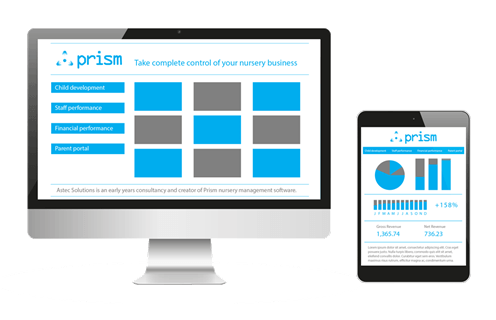Nurseries are continually full of the unexpected. Staff call in sick at the last moment, children have accidents, disagreements break out between children or the heating can suddenly break down. No two days are the same.
In this environment full of the unforeseen, how can you deal with challenges without feeling overwhelmed?
1) Keep calm
When a crisis presents itself, being able to keep a cool head is essential. Panic and stress stop you thinking clearly and thus affect your ability to solve a problem. Having a way to regain focus is essential.
Some problems need an immediate reaction and you may need to direct others, so it’s important to find a way to quickly get back on an even keel. You may find that a simple technique, such as taking a deep breath, will help you regain composure.
Other problems may not need to be addressed immediately, but will still need attending to with a clear head. Knee jerk reactions are rarely a good response, so if you feel you are beginning to simmer, take five minutes to calm down. Time is a great healer!
Ultimately developing a level head is essential in dealing with any problem; find a mechanism which works for you.
2) Think objectively
Dealing with problems effectively requires thinking clearly about what exactly needs to be done. By focusing on facts and solutions, you can begin to remove the uncertainty and indecision that come with stress.
With each problem that presents itself, think:
These questions can be useful for situations that require an immediate response, such as an accident with a child, and for longer term situations, such as a staff member being signed off long term sick. Some circumstances can benefit from more formal planning. By not missing any steps and by communicating effectively with everybody involved, you will be able to solve problems faster and more effectively.
3) Reflect
Reflective practice is an integral part of the early years profession and is essential when dealing with an unexpected scenario. Reflection enables us to learn, to improve and to make sense of what has occurred. When a situation has been resolved, it is a useful exercise to consider what has happened and the impacts of your actions.
You may benefit from writing this down individually or carrying out the task as a group exercise with other members of you team.
A nursery environment will never be free of complications and challenges, but this is what keeps our job fresh and new every day. Knowing how to deal with the unexpected effectively means that these ‘problems’ will not interfere with or affect your ability to do your day-to-day job. By adopting these practices, you will begin to see the unexpected as new learning experiences which help you to grow and develop as a practitioner.
Heather Stallard
Latest posts by Heather Stallard (see all)
- Vision, values & clarity - 7 January 2016
- Parental Partnerships – the conversations we’re not having - 10 November 2015
- Quality improvement in process: adopting BEEL and EEL - 13 October 2015




Recent Comments